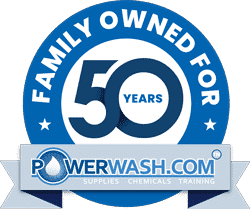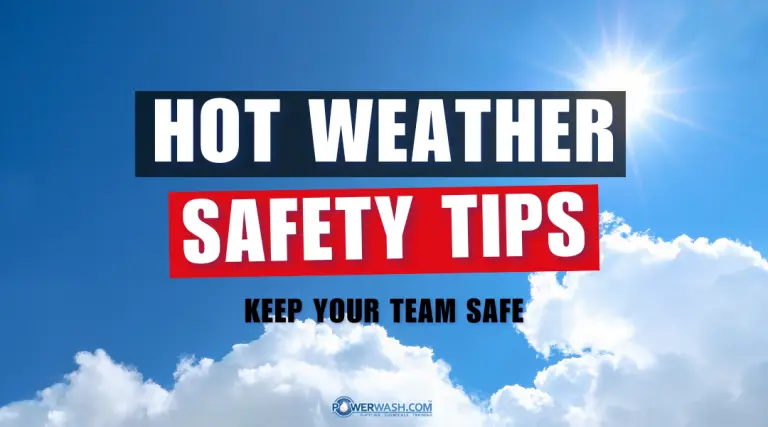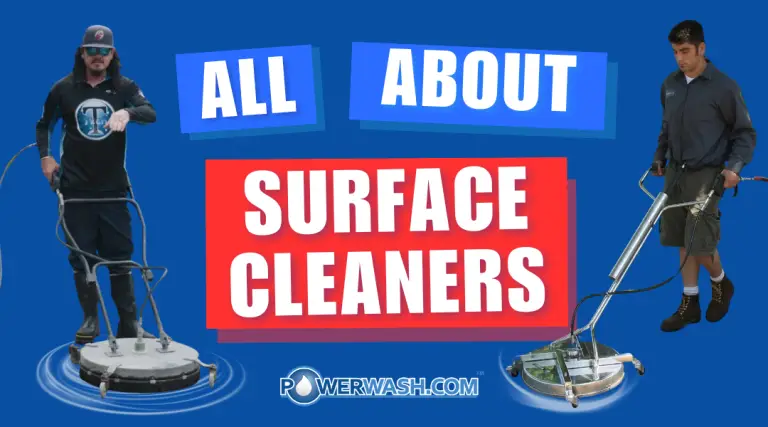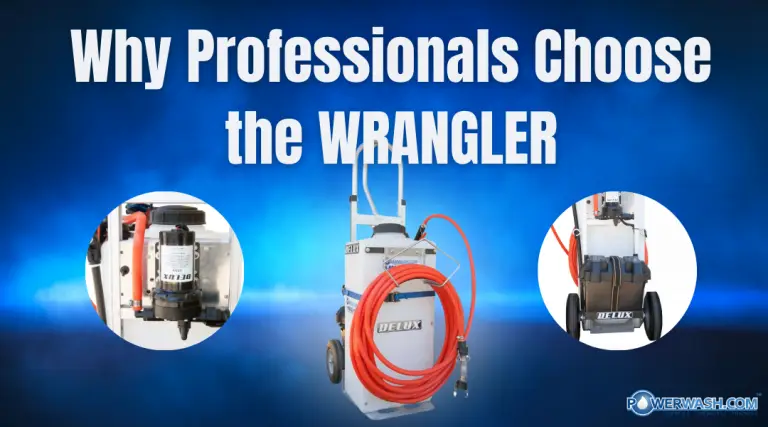- Home
- /
- Power Wash Basics
- /
- Pressure Washer Maintenance Tips to Keep Your Machine Running
Subscribe To Our Newsletter
Stay in the know on the latest products, deals, events, tips & tricks.
Social Media
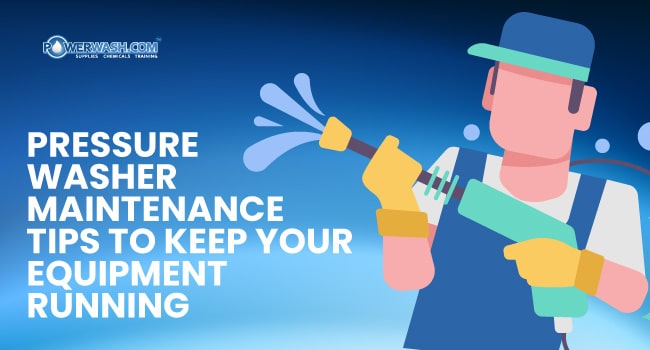
Pressure Washer Maintenance Tips to Keep Your Machine Running
If you’re in the pressure washing business, your equipment is the backbone of your company. Average machines can cost anywhere from $250-$6,000, so that’s reason enough to want to protect your investment! To ensure your equipment keeps running as it should, here are some pressure washer maintenance tips to keep your equipment tip-top!
How can I keep my pressure washing equipment running longer?
Like a car needs regular maintenance, so does your pressure washing equipment. Filters need cleaning, oil needs changing, and worn seals need replacing. We’ll review the basic upkeep to extend the life of your equipment.
Begin With a Basic Inspection
Start by looking at your oil filter, spark plugs, and air filter. Replace any if they look dirty or worn. You probably won’t need to replace your air filter that often since the equipment is used in a clean environment.
Check your oil next. If it’s dirty, drain through the drain hose at the end and replace it. Then check your fuel filter for particles and replace it if needed.
You should have an hourly maintenance schedule affixed to each power washing machine with suggested tasks. Follow all of them except the oil changes.
We recommend changing your oil more frequently. Most of these engines run full throttle, and oil needs replacing around every 40 hours of use or once every two weeks.
Pump Maintenance and Inspection
Inspect your pump for leaks or drips that indicate a seal needs replacing. The only other thing to check on your pump is the oil. You won’t need to change it often. It requires changing after the first 50 hours and then every 500 hours. Since no combustion occurs in the pump engine, the oil doesn’t break down. You’ll probably only need to change it 1-2 times yearly.
Check for Leaks
When looking for leaks, pay close attention to the intake side. A leak there will lower the pressure and cause your pump to cavitate (intense vibrating). Take care of it immediately before it damages the inside of your pump.
If you’re drawing from a tank and not a pressure hose, pressurize using the pressure hose from the tank, and leaks will show. Sometimes it’s just a loose fitting or a worn-out o-ring.
Clean Your Water Filter
If your water filter is dirty, replace it, but don’t stop there. You must clean your tank to prevent sediment from clogging your filter again. Sediment from construction meters and water quality all affect how fast your filter clogs.
Check Your Battery
Keep your battery terminals clean. Corrosion is common and easy to clean with battery protection spray. If your battery has lost charge during storage, it may have drained and need a new charge.
Examine the Burner
Replace the oil filter in the burner and change the fuel nozzle, and remember to clean and adjust the electrodes. They may need a descaling if you work with hard water. That’s about all you need to do with the burner.
Inspect Your Nozzles
Water is powerful and can lead to nozzles wearing out. You won’t know you have a problem unless you check your pressure. A quick coupler gauge easily measures your PSI. Remember that the closer the pump is connected, the more accurate your reading will be. If you attach it after the burner, you’ll lose about 100-300 PSI, so account for that. A pump valve cap allows you to connect the gauge straight to the Head of the pump for accuracy.
Visually inspect all your nozzles. Residential use should get anywhere from half to an entire season of use. Check your pressure nozzle, fan tip, and extended-range nozzles. Quick couplers all have o-rings. Standard sizes are ¼”, ⅜,” and ½.” Replace each one, ensuring they are seated correctly, including the downstream injectors.
Pressure Washer Maintenance Tips | Key Takeaways
- Maintaining your power washer equipment gives better performance and longer life.
- Oil changes need to be performed every 40 hours.
- Cleaning your tank will keep your water filter clean.
- Attaching a gauge at the head of the pump ensures an accurate PSI reading.
- Nozzles need replacing as they wear on average once or twice a season.
Visit PowerWash.com For All Things Power Washing
Power washing is vital to keeping any property – commercial or residential – looking its best. Now you know how to keep your equipment running optimally. With so many different power washing machines on the market, it can be tough to figure out which one is right for the job.
That’s where we come in. We’re the leading destination for all things power washing, and we’re here to help you learn everything you need to know. We carry a full line of power washing equipment from the top brands in the industry, and our team of experts is always available to answer your questions. So we’ve got you covered whether you’re just starting in the power washing business or a seasoned pro. Visit us today and see what we can do for you: PowerWash.com.
Share This Post
More To Explore
Beat the Heat: Summer Safety Tips for Power Washing Professionals
Protect Your Crew. Protect Your Equipment. Protect Your Business. When the summer sun blazes, pressure washing jobs don’t stop—but the ...
Soft Wash Additive That Smells Amazing? Meet Fresh Wash
Freshen Up Every Wash Soft washing is all about precision, power, and presentation — and nothing completes a job like ...
Mastering the Art of Pressure Washing: Key Insights on Surface Cleaners
For professionals in the pressure washing industry, a surface cleaner is an indispensable tool, particularly for those who specialize in ...
The Wrangler™ Chemical Sprayer: The Ultimate Tool for Professional Cleaning Applications
For commercial cleaners and pressure washing professionals, efficient chemical application is key to achieving the best results. The Wrangler™ Chemical ...
